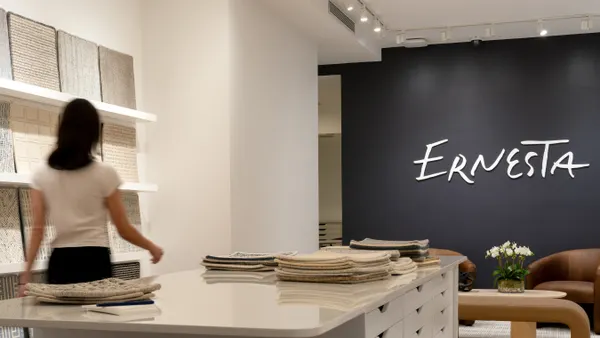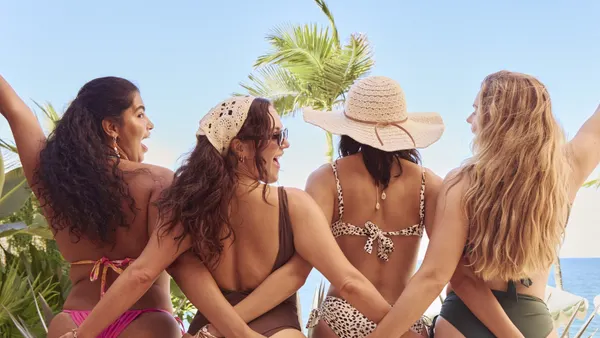Dive Brief:
-
Amazon is employing a segmented approach to its private-label brands, in order to reach various customer segments by price and style, according to a report from retail think-tank Coresight Research. Coresight and competitive intelligence provider DataWeave crunched the metrics on 74 known Amazon U.S. private labels, looking at products listed on Amazon.com in early May.
-
Apparel (the biggest by far) and home products dominate the e-retailer's private label approach, Coresight found. The e-commerce giant offers nearly 5,000 private-label products across men's, women's and children's clothing and footwear, about three-quarters of its total 6,825 private-label products (including electronics, snacks, furniture and consumer products). Of Amazon's 74 private labels, 66 offer apparel, according to the study, which was emailed to Retail Dive.
-
Home and kitchen is Amazon's second-biggest private-label category by number of products, with 852 items sold through Pinzon by Amazon, Rivet and Stone & Beam, and through its multicategory AmazonBasics brand, Coresight said. Meanwhile its private-label offerings in grocery and consumer goods remain limited, and in beauty and personal care Amazon has just two private-label products.
Dive Insight:
While electronics launched Amazon's private-label play, starting in 2009, that category has given way to apparel and home goods, according to this study. Amazon's private labels offer mostly those two categories, though some of them are through its brands that began as household basics or electronics labels, according to Coresight.
For example, seven of Amazon's 10 biggest private labels are apparel brands, reflecting the overall strength of the category. But among Amazon's private apparel labels, only Lark & Ro is a major one. "This implies that Amazon's strategy in fashion is to build smaller, more specialized ranges than it does in categories such as home or electronics, where brands such as AmazonBasics and Rivet include a large number of products," according to the report.
Amazon's average prices belie the variety of its private-label price points, which appeal to different customers. In apparel, for example, the average price for an Amazon private label item is $38, a price that, as Coresight notes, at first glance implies a mid-market positioning. "However, that average conceals a wide range of price points that reflect Amazon's tiered proposition spanning budget to high-end," according to the report.
Furthermore, its childrenswear and accessories items depress Amazon's average apparel price, while adult footwear pushes it up, according to the report. Overall, in women's, Amazon's average private-label price is $40 and $30 for men's. However, average prices fluctuate greatly by brand: The average price for its formal-dress brand Social Graces is $110, the highest average price of all Amazon's apparel private labels, while the average price at Amazon Essentials is $23 and $17 at kidswear label Scout + Ro.
Amazon itself doesn't break out hard sales numbers on its labels, so Coresight and DataWeave looked at numbers of reviews — a system that is less than ideal, as certain products garner more reviews than others, they said.
Much is made of Amazon's private-label prowess, but another report from from analytics firm Jumpshot presents a mixed picture. AmazonBasics accounts for 88% of its private label conversions, and it leads only in electronics (which are nearly half of those purchases). Take out AmazonBasics, and the e-commerce giant owns just 7% of conversions market share, according to the report, noting that, "Amazon doesn't have private labels cracked."














